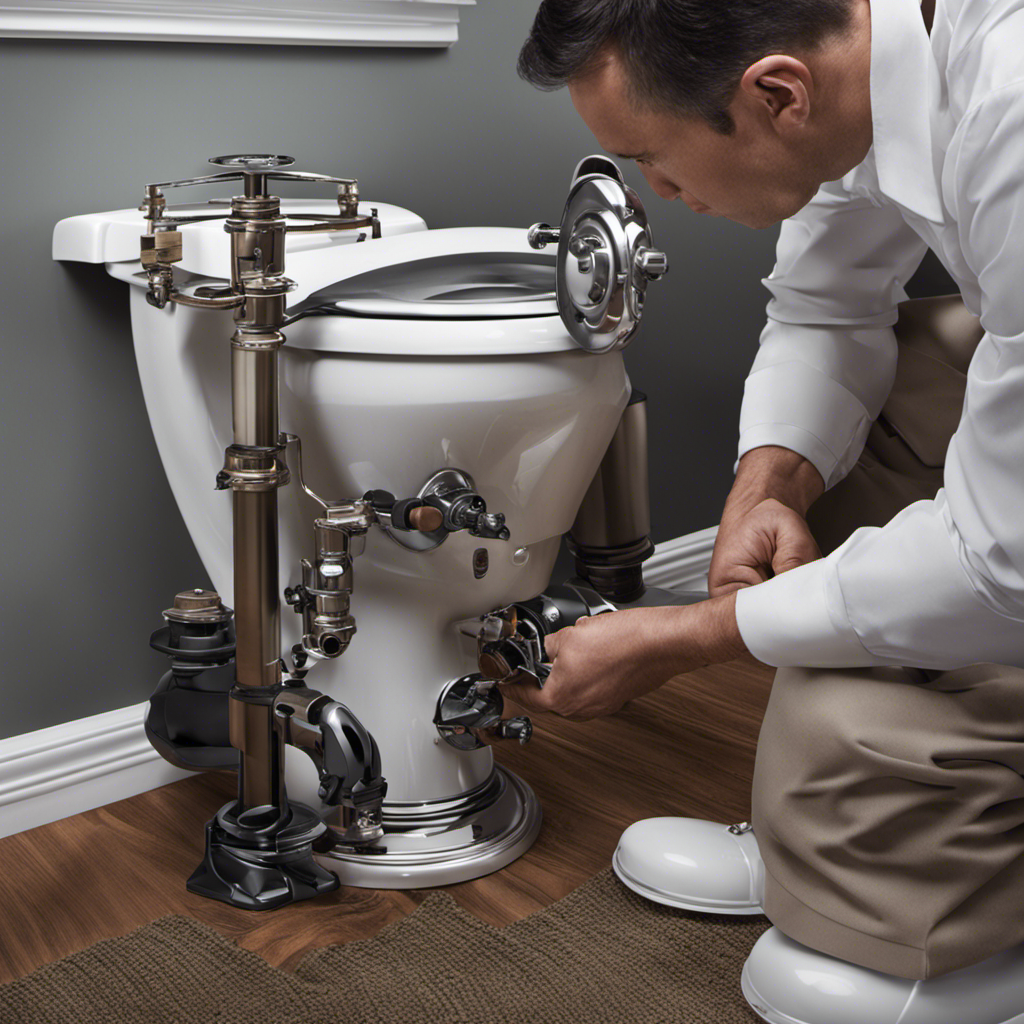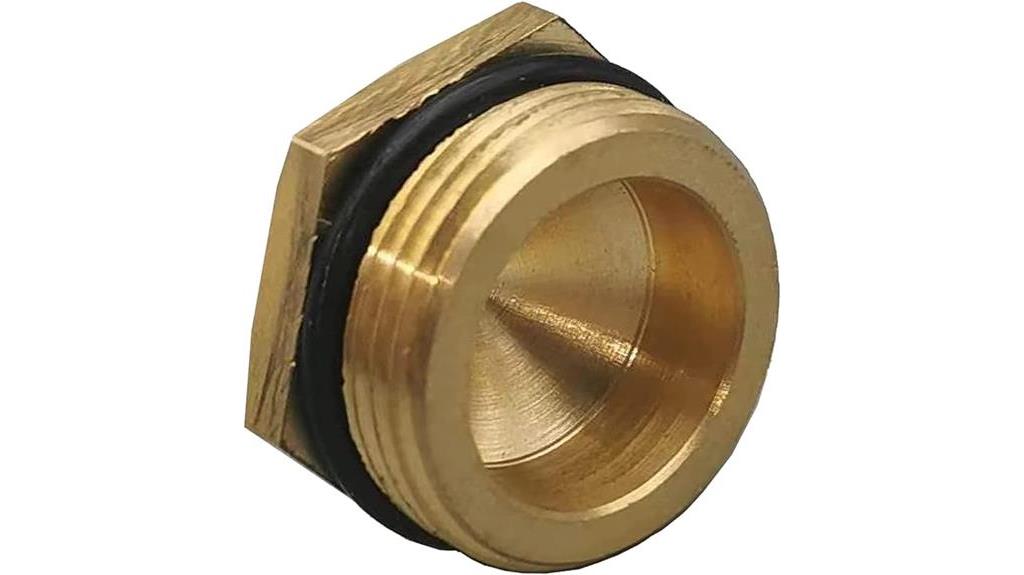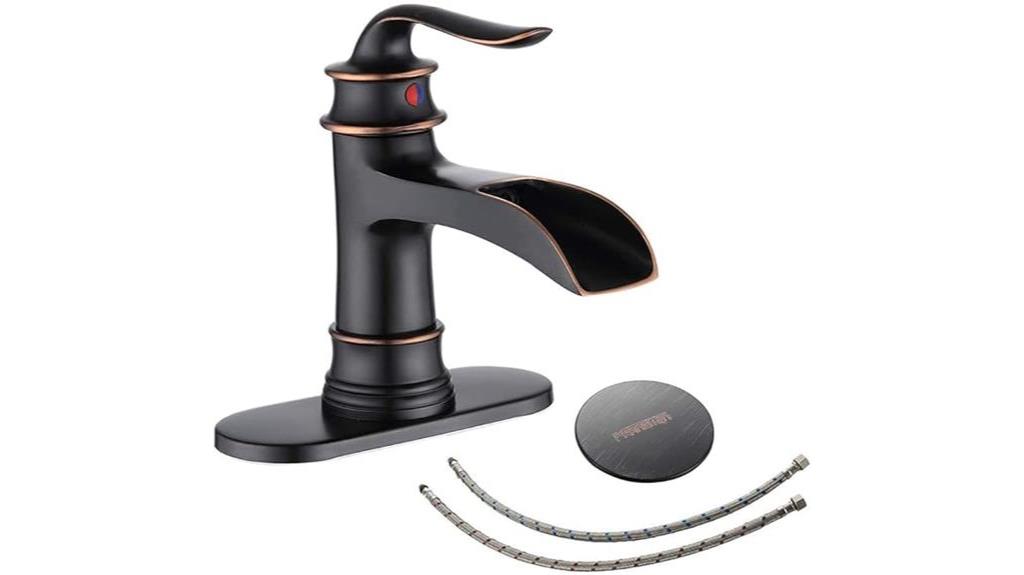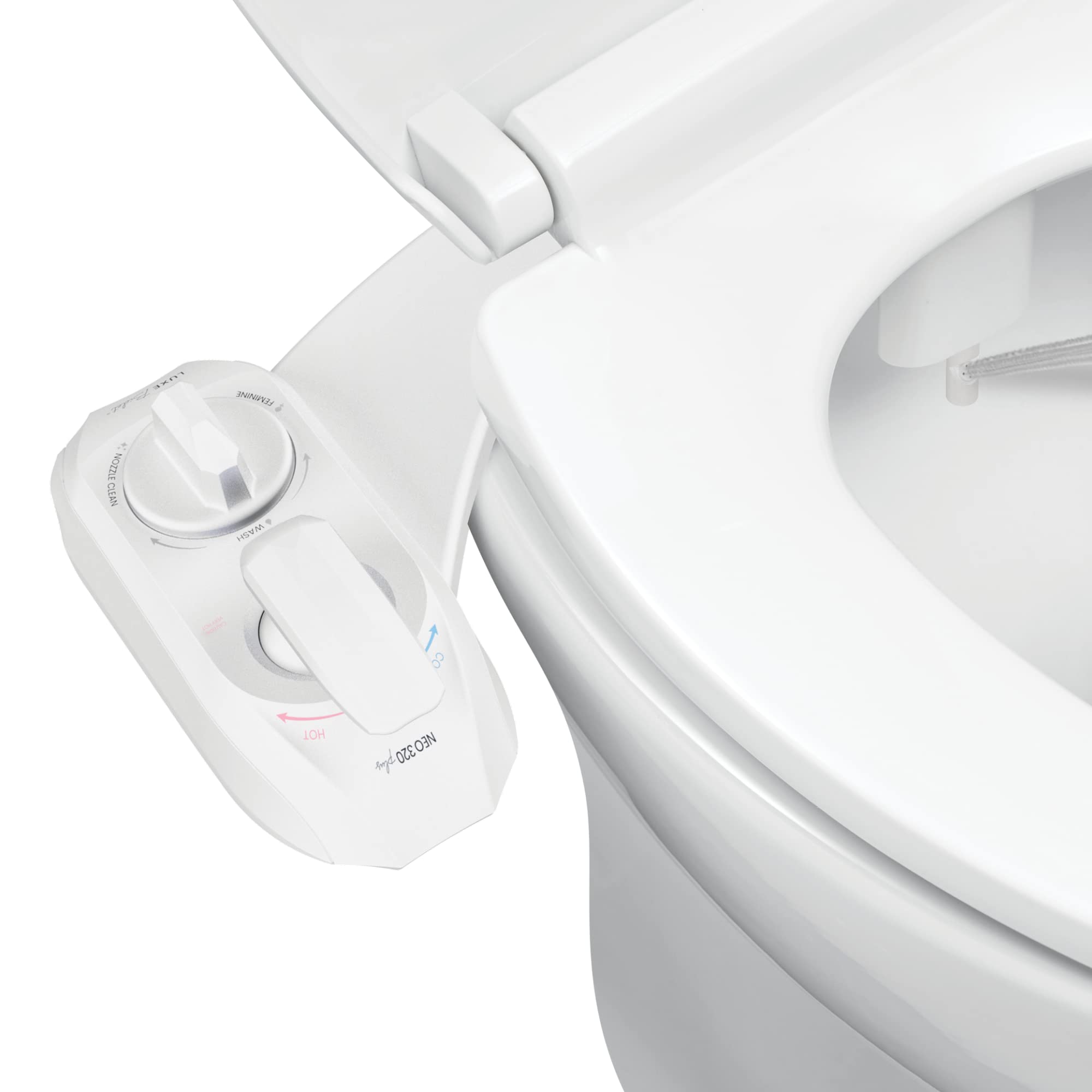Oh, the tales we could tell about flushable wipes! As plumbers, we’ve seen it all – clogged pipes, overflowing toilets, and frustrated homeowners. But here’s the thing: flushable wipes may not be as flushable as you think.
In fact, they can cause some serious plumbing problems. So, in this article, we’ll share our experienced recommendations for alternative hygiene products and how to properly dispose of those so-called flushable wipes.
Get ready to master the art of keeping your pipes clear and your plumbing happy.
Key Takeaways
- Flushable wipes do not break down easily and can cause serious plumbing issues.
- They contribute to clogging in sewer systems and can harm marine life when they end up in waterways.
- Biodegradable alternatives, such as bamboo toilet paper, are recommended for better environmental impact.
- Proper disposal of flushable wipes in the trash can prevent plumbing issues and reduce pollution in water bodies.
The Truth About Flushable Wipes
We have tested and confirmed that flushable wipes aren’t actually flushable. Despite their misleading name, flushable wipes don’t break down like toilet paper and can cause serious plumbing issues.
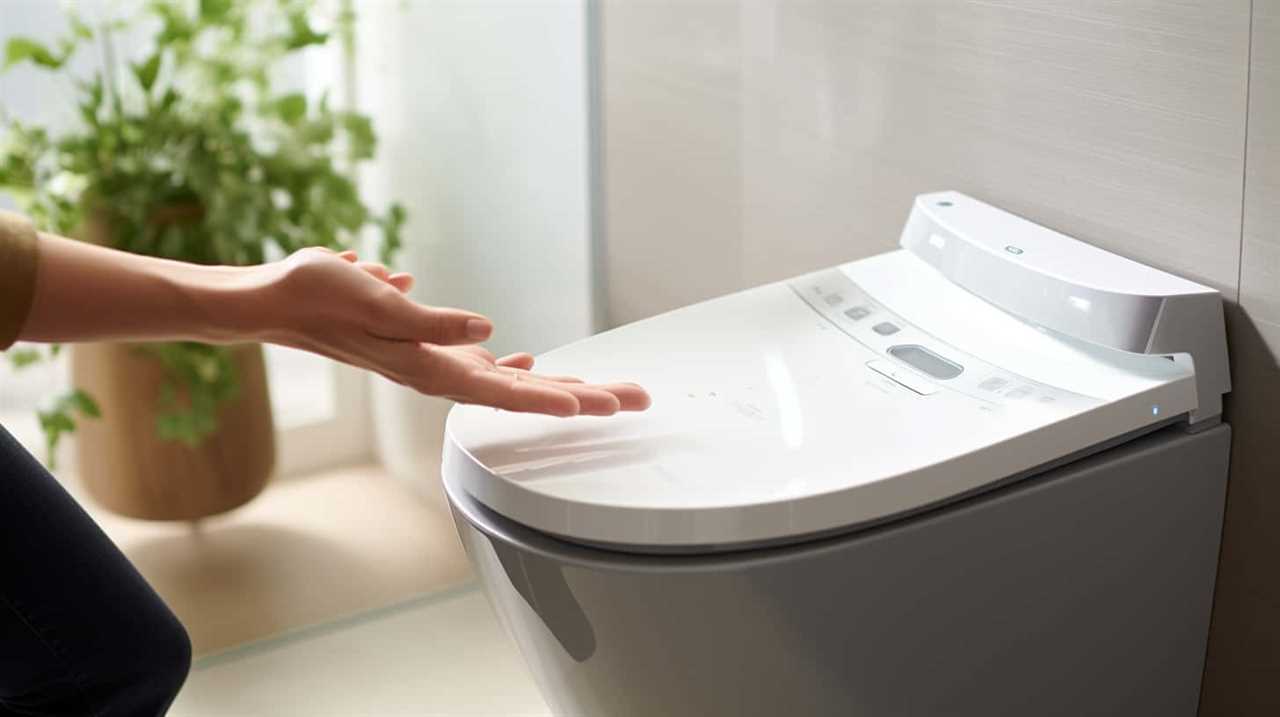
One of the main consumer misconceptions about flushable wipes is that they’re safe for the environment. However, this is far from the truth. Flushable wipes contribute to clogging in sewer systems, leading to costly repairs and maintenance. Furthermore, these wipes can end up in oceans and rivers, causing harm to marine life and polluting our waterways.
It’s crucial for consumers to understand the environmental impact of flushable wipes and make informed choices. Opting for alternatives like biodegradable wipes or simply disposing of wipes in the trash can greatly reduce their negative effects on the environment.
Common Plumbing Problems Caused by Flushable Wipes
Plumbers frequently encounter common plumbing problems caused by flushable wipes, which can lead to costly repairs and maintenance.
One of the most common issues is toilet clogs. Flushable wipes aren’t actually designed to break down like toilet paper, so they can easily get stuck in the pipes and create blockages. These clogs can cause toilets to overflow and result in water damage to your bathroom.

Another problem caused by flushable wipes is sewer backups. When flushable wipes accumulate in the sewer lines, they can create a barrier that prevents wastewater from flowing freely. This can lead to backups in your sewer system, causing foul odors, slow drains, and even sewage backups into your home.
To avoid these plumbing problems, it’s best to dispose of flushable wipes in the trash instead of flushing them down the toilet.
Why Flushable Wipes May Not Be as Flushable as You Think
One major concern with flushable wipes is their deceptive flushability. Many consumers mistakenly believe that because these wipes are labeled as ‘flushable,’ they can be safely disposed of in the toilet. However, this isn’t entirely true. While flushable wipes may indeed be able to pass through the pipes, they can still cause significant problems downstream.
Firstly, the environmental impact of flushable wipes should be considered. Unlike toilet paper, which is designed to disintegrate quickly in water, flushable wipes are made of materials that are much more resistant to breakdown. As a result, they can contribute to blockages in sewer systems and may end up in waterways, causing harm to aquatic life.

Secondly, consumer misconceptions about flushable wipes can lead to costly plumbing issues. These wipes can accumulate in pipes and create blockages, leading to clogged toilets, backed-up drains, and even sewer overflows. Plumbers often find themselves dealing with these problems, which could have been prevented if consumers were aware of the potential risks associated with flushable wipes.
Plumbers’ Recommendations for Alternative Hygiene Products
To address the potential issues caused by flushable wipes, plumbers recommend considering alternative hygiene products that are safer for both your plumbing system and the environment. While flushable wipes may seem convenient, they can cause clogs and damage to your pipes. Here are some eco-friendly alternatives to consider:
| Alternative Hygiene Products | Pros | Cons |
|---|---|---|
| Biodegradable toilet paper | Breaks down easily in water, safe for plumbing systems | May not be as durable as regular toilet paper |
| Bamboo toilet paper | Sustainable and renewable resource, breaks down easily | Can be more expensive than regular toilet paper |
| Bidets | Reduces the need for toilet paper, promotes better hygiene | Initial cost of purchasing and installing a bidet |
Bidets, in particular, offer a unique solution to reducing the use of toilet paper. While they may require an initial investment, bidets provide a more thorough and hygienic cleaning experience. Additionally, they can help reduce the amount of toilet paper waste generated, making them an environmentally friendly option. It’s important to weigh the pros and cons and choose the alternative hygiene product that best suits your needs and preferences.
How to Properly Dispose of Flushable Wipes to Prevent Plumbing Issues
Continuing the discussion from alternative hygiene products, we can prevent plumbing issues by properly disposing of flushable wipes. It’s important to understand that even though these wipes are labeled as ‘flushable,’ they can still cause significant damage to your plumbing system if not disposed of correctly.

To avoid clogging your pipes and causing expensive repairs, it’s essential to follow proper disposal methods. Firstly, don’t flush flushable wipes down the toilet. Instead, dispose of them in the trash bin. Additionally, consider using a sealable bag to prevent any odors or leakage.
It’s crucial to be aware of the environmental impact of flushable wipes. These wipes don’t break down as easily as toilet paper and can contribute to sewer blockages and pollution. By adopting proper disposal methods, we can protect our plumbing systems and minimize the environmental impact of flushable wipes.
Frequently Asked Questions
Are All Flushable Wipes Created Equal, or Are Some Brands More Likely to Cause Plumbing Problems Than Others?
All flushable wipes are not created equal. Some brands are more likely to cause plumbing problems than others due to their environmental impact. We recommend exploring alternatives to flushable wipes to avoid potential plumbing issues.
Can Using Flushable Wipes in Older Plumbing Systems Lead to More Frequent Clogs or Blockages?
Using flushable wipes in older plumbing systems can lead to more frequent clogs or blockages. Plumbers recommend using toilet paper instead, as it is a better option for plumbing. Additionally, the environmental impact of flushable wipes in older plumbing systems should be considered.

Are There Any Specific Types of Flushable Wipes That Plumbers Recommend Avoiding Altogether?
Plumbers recommend avoiding any type of flushable wipes due to their potential to cause clogs and blockages. Instead, we suggest using plumbers’ preferred alternatives, such as toilet paper, to prevent damage to your plumbing system. Additionally, it is important to consider the environmental impact of flushable wipes.
What Are Some Common Signs That a Plumbing Issue May Be Caused by the Use of Flushable Wipes?
Common signs of plumbing issues caused by flushable wipes include clogs, slow drainage, and overflowing toilets. To prevent these problems, it’s crucial to avoid flushing wipes altogether and stick to toilet paper.
Are There Any Additional Steps Homeowners Can Take to Prevent Plumbing Problems Caused by Flushable Wipes, Other Than Not Flushing Them?
To prevent plumbing problems caused by flushable wipes, homeowners can take preventive measures such as using a dedicated trash bin, using a bidet attachment, or using reusable cloth wipes as alternative solutions.
Conclusion
In conclusion, plumbers strongly advise against using flushable wipes due to the numerous plumbing issues they can cause. Despite their claims of being flushable, these wipes often don’t break down as easily as toilet paper, leading to clogged pipes and costly repairs.

Just like trying to fit a square peg into a round hole, flushable wipes may seem like a convenient option, but they simply don’t belong in our plumbing systems. It’s best to stick to traditional toilet paper and properly dispose of wipes in the trash.

